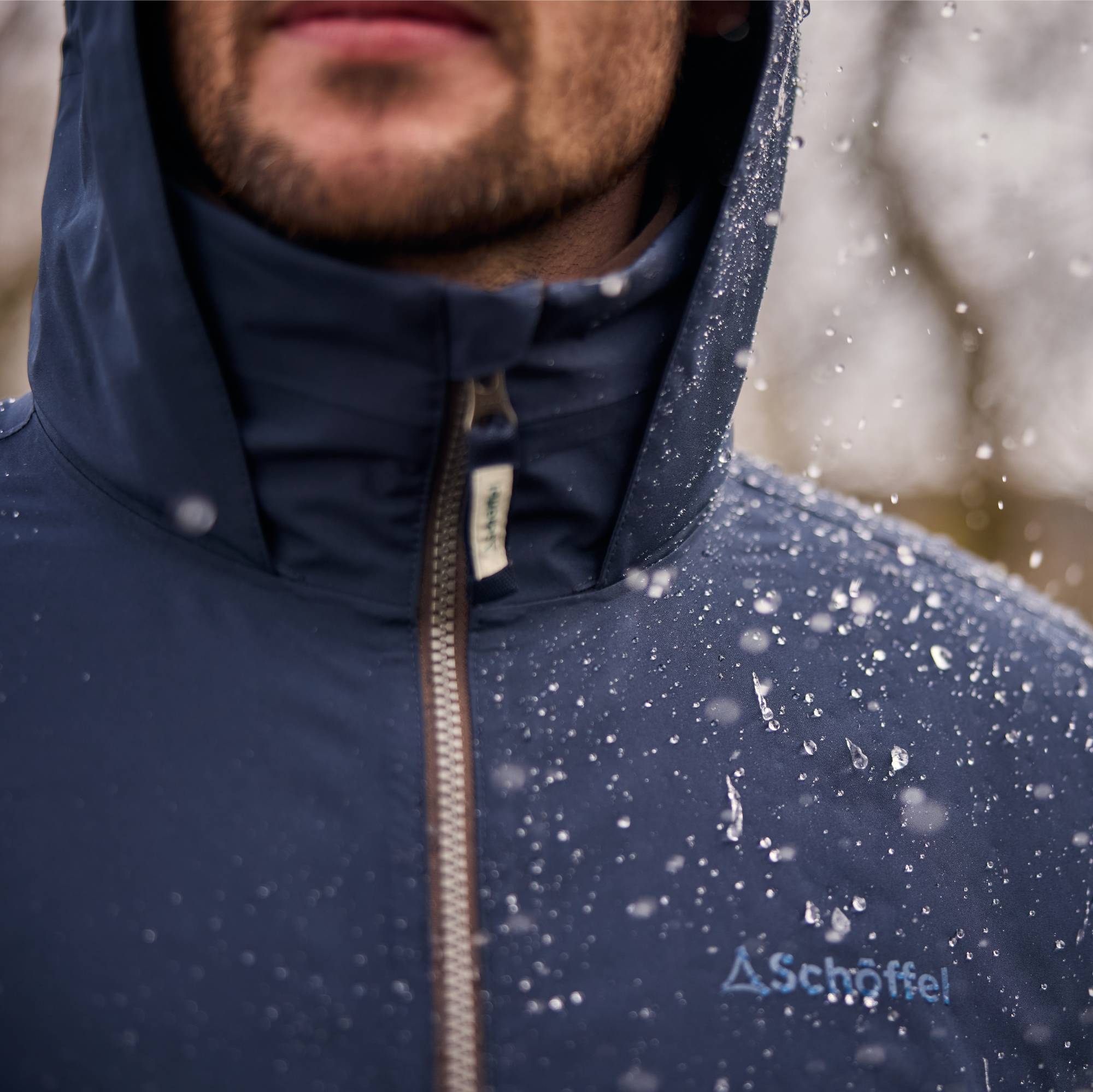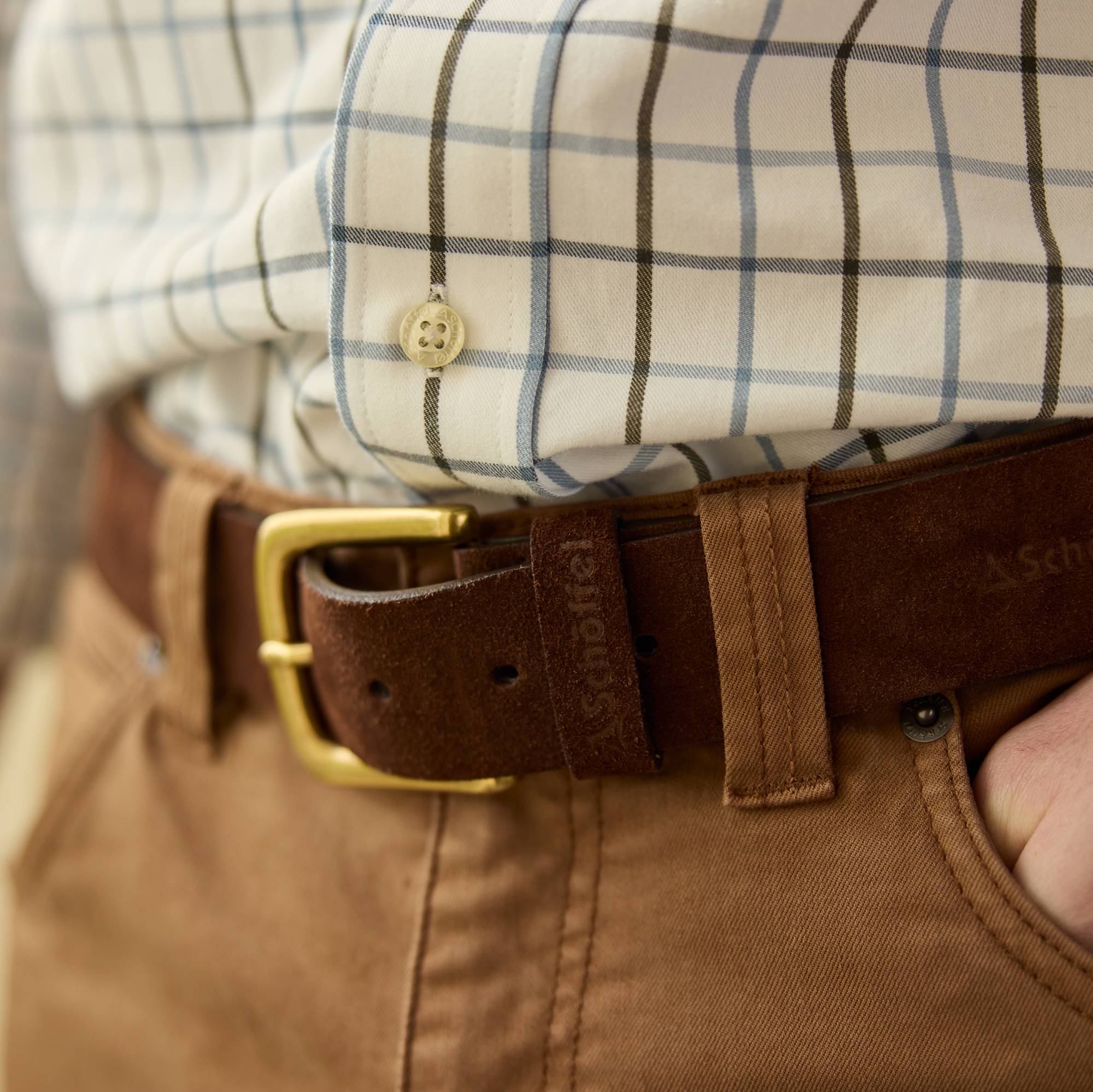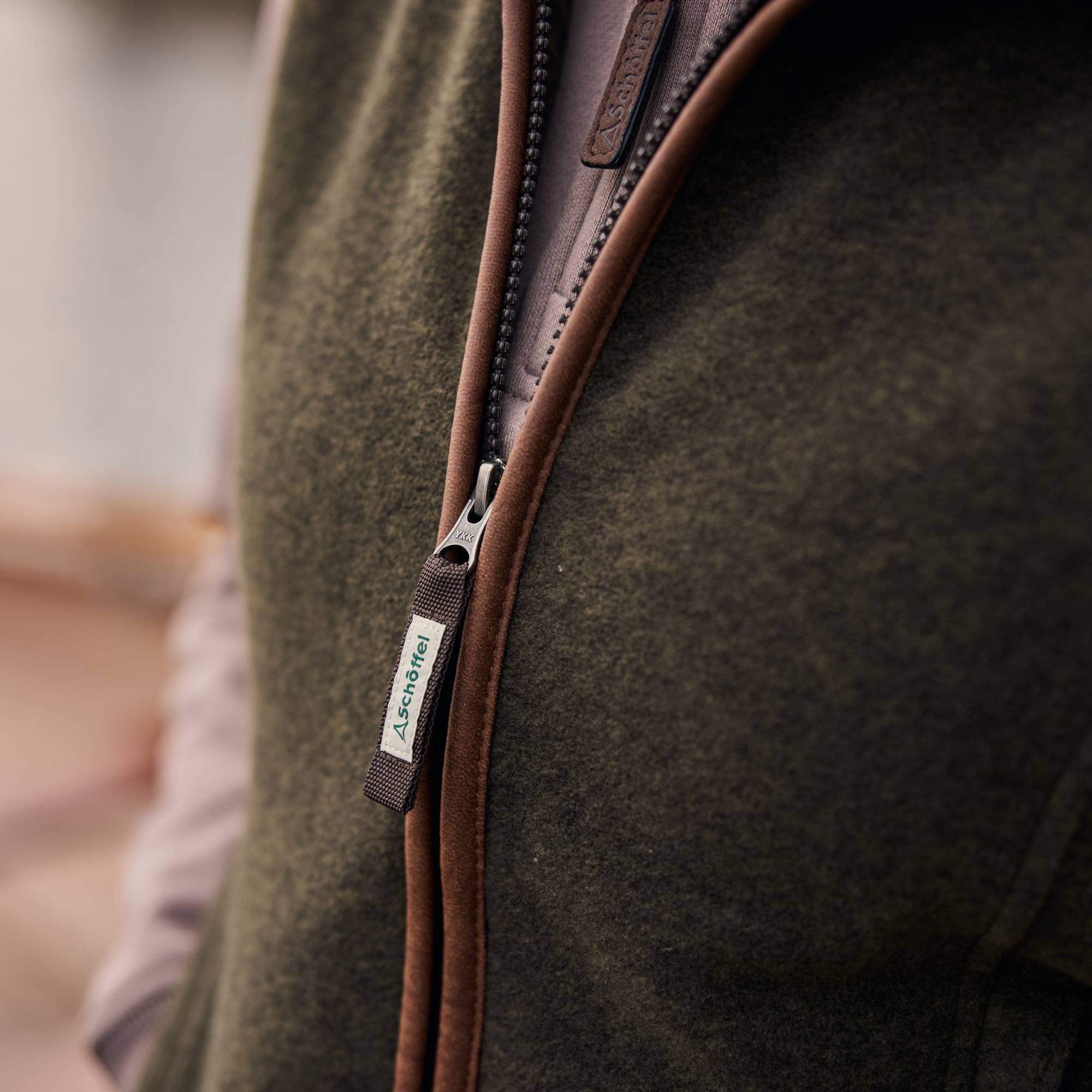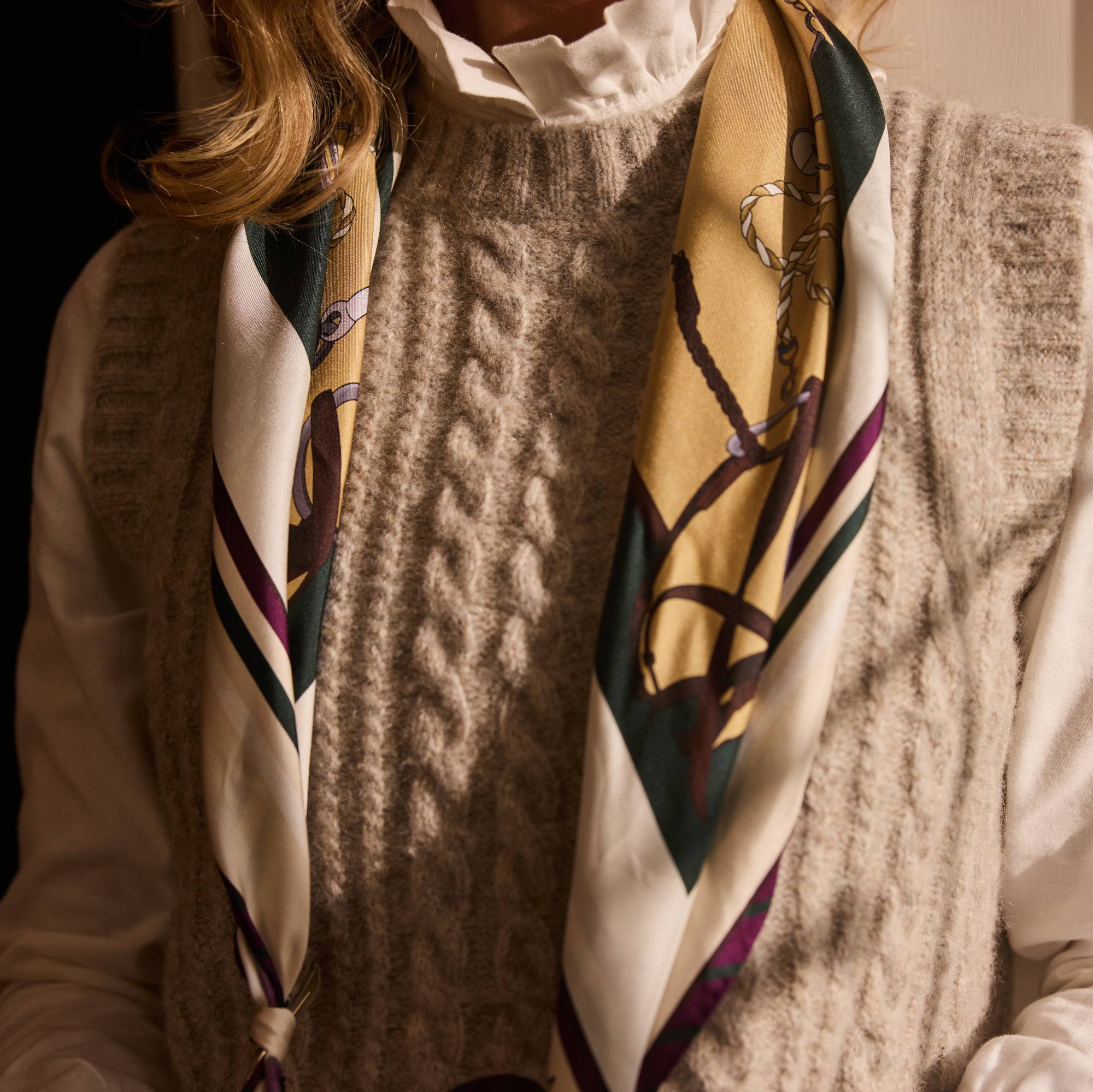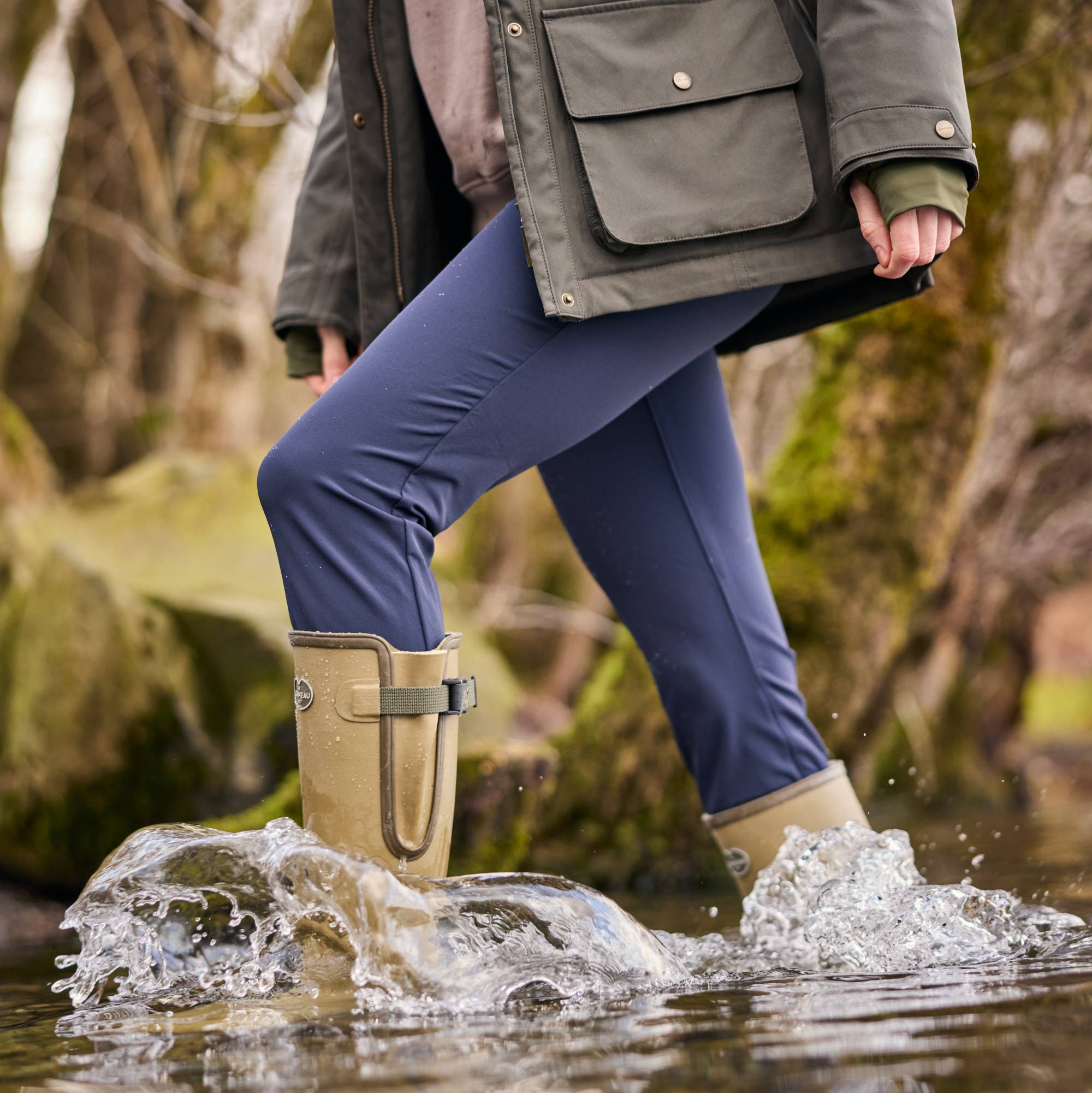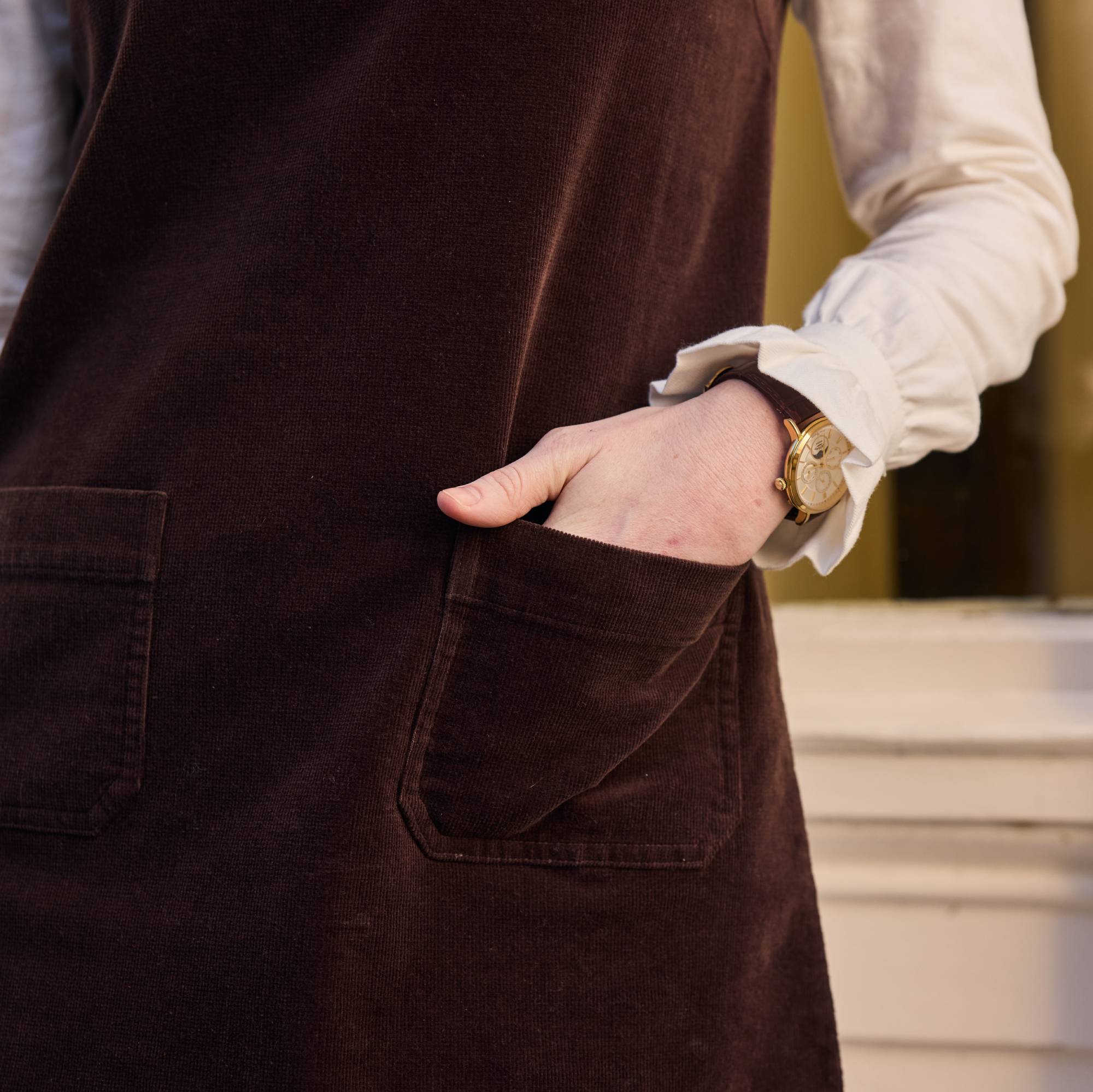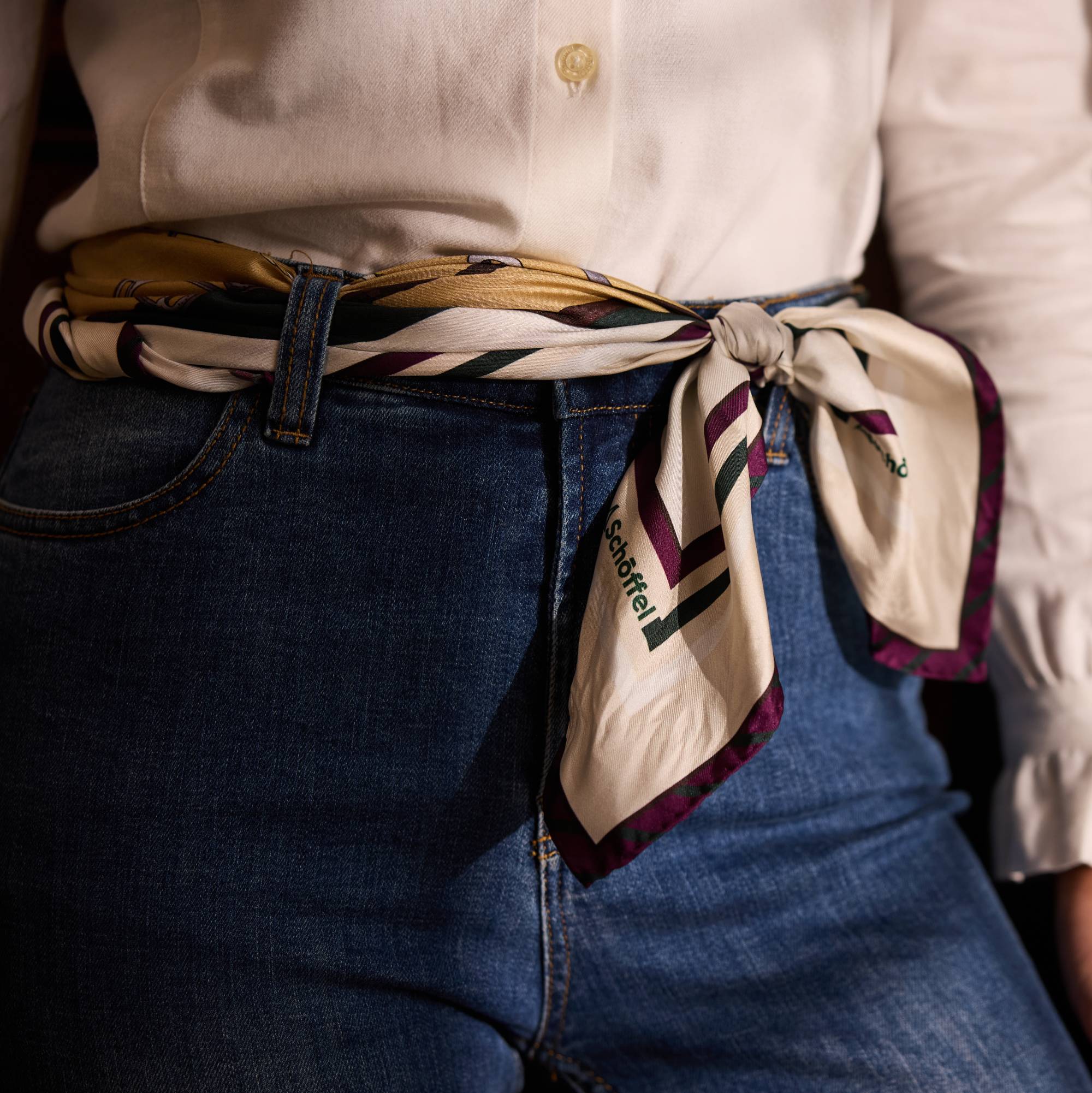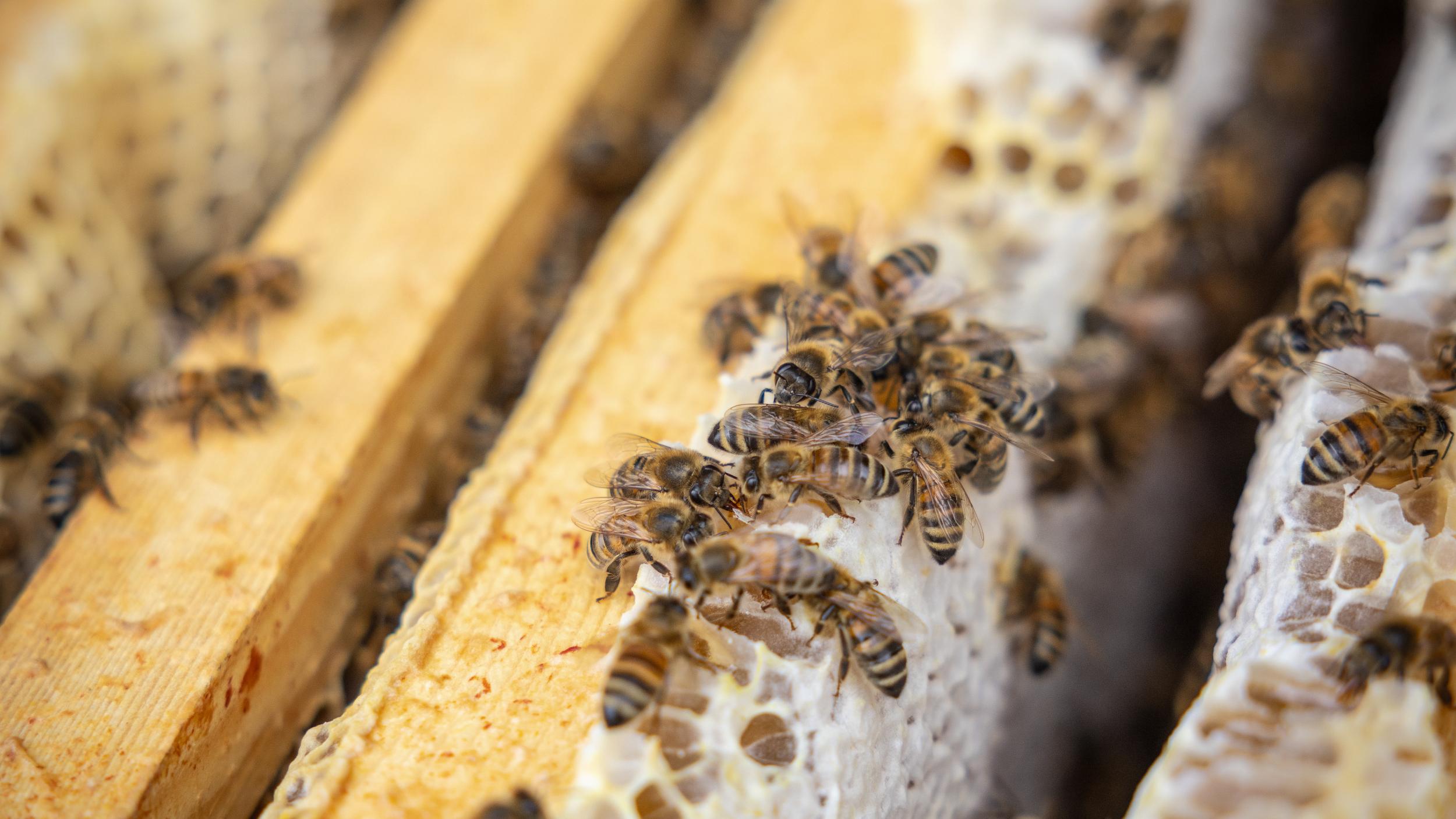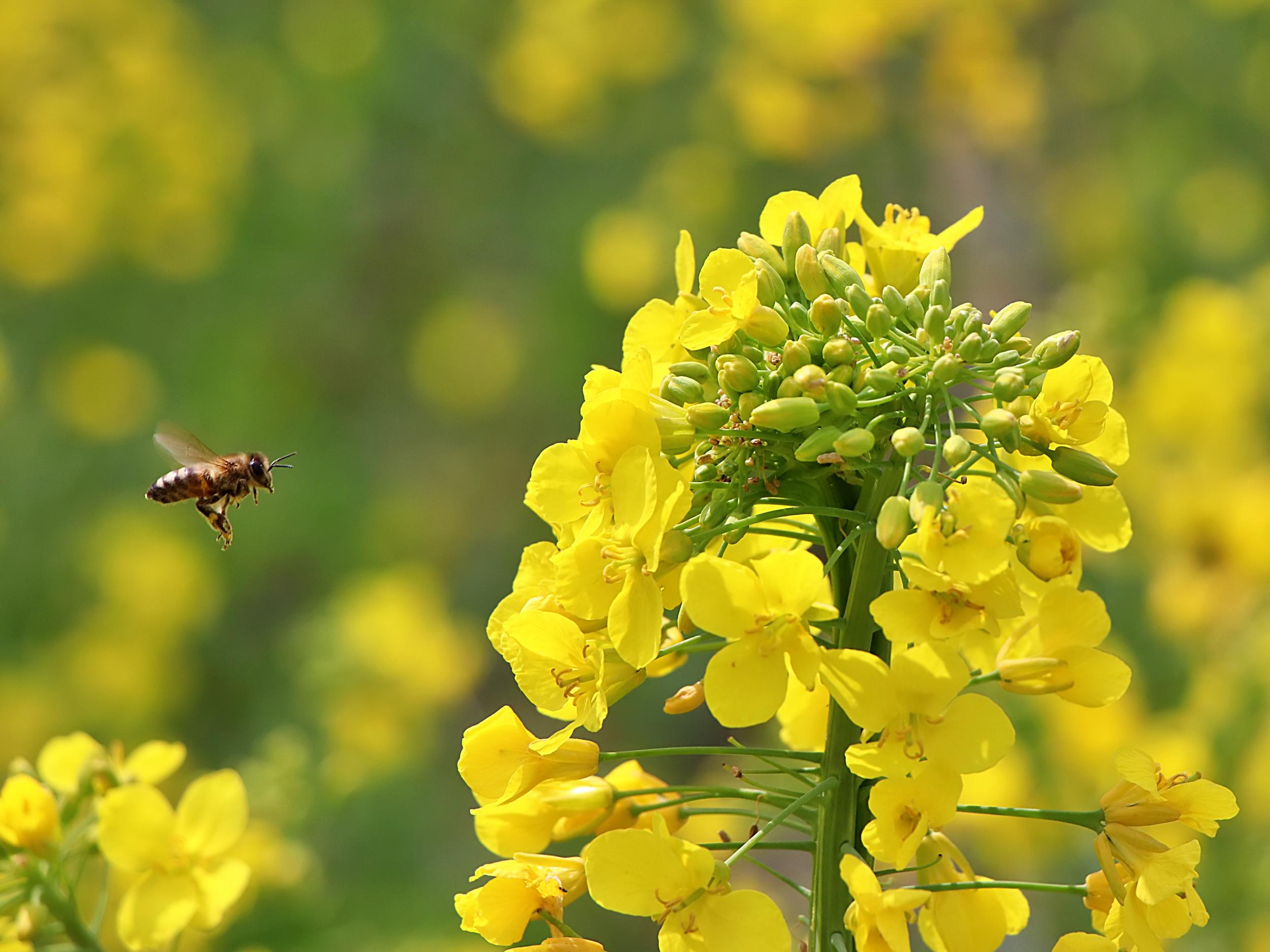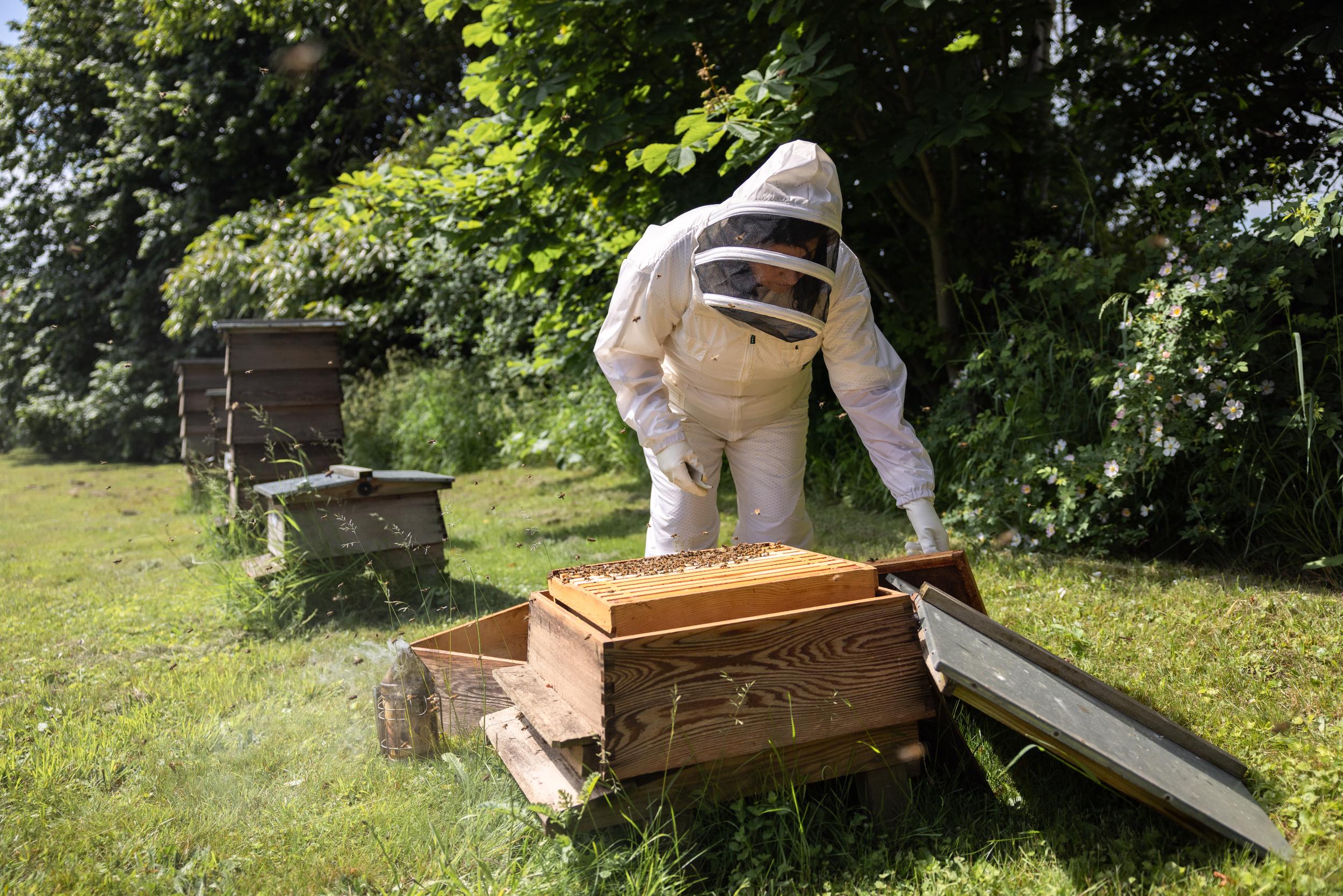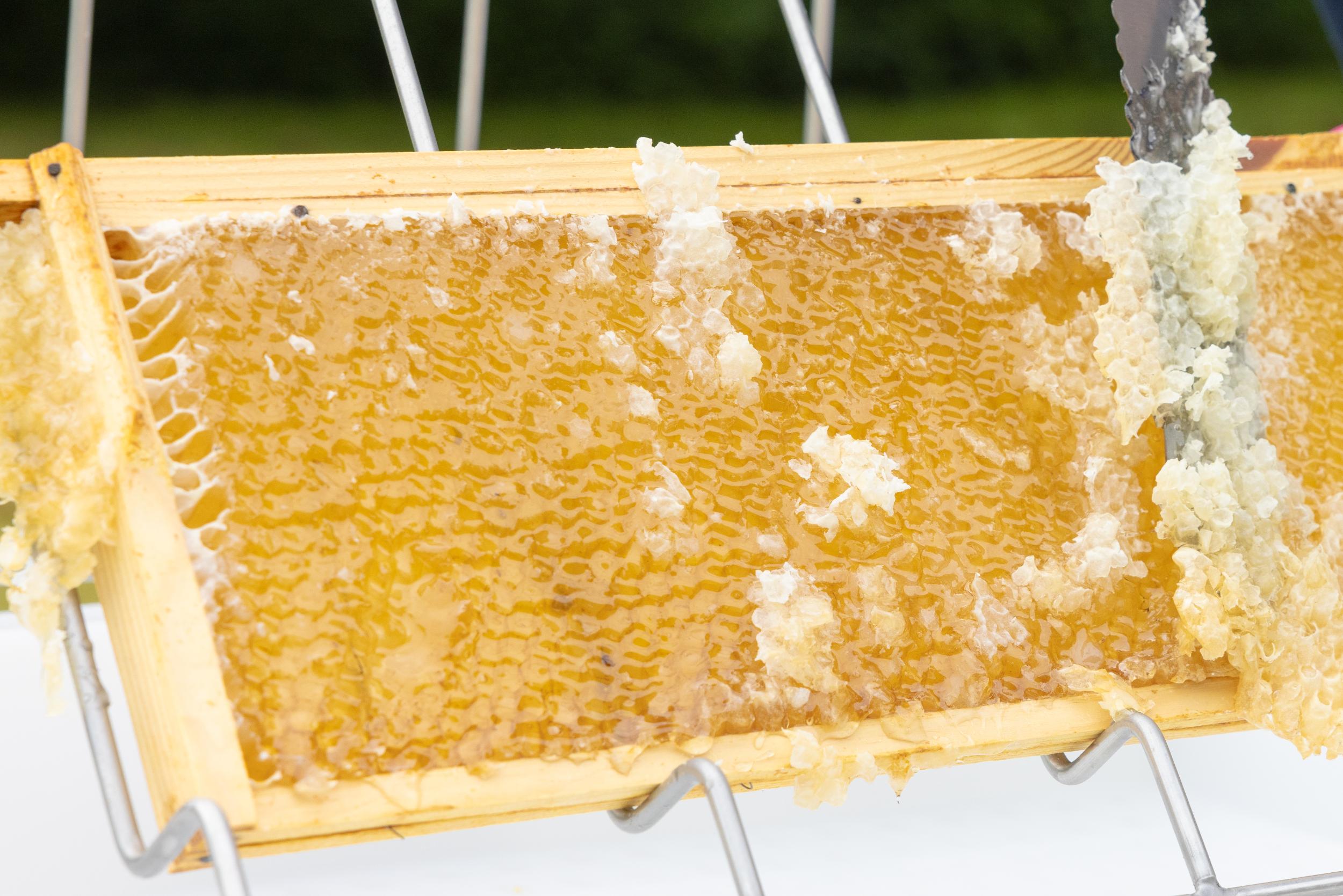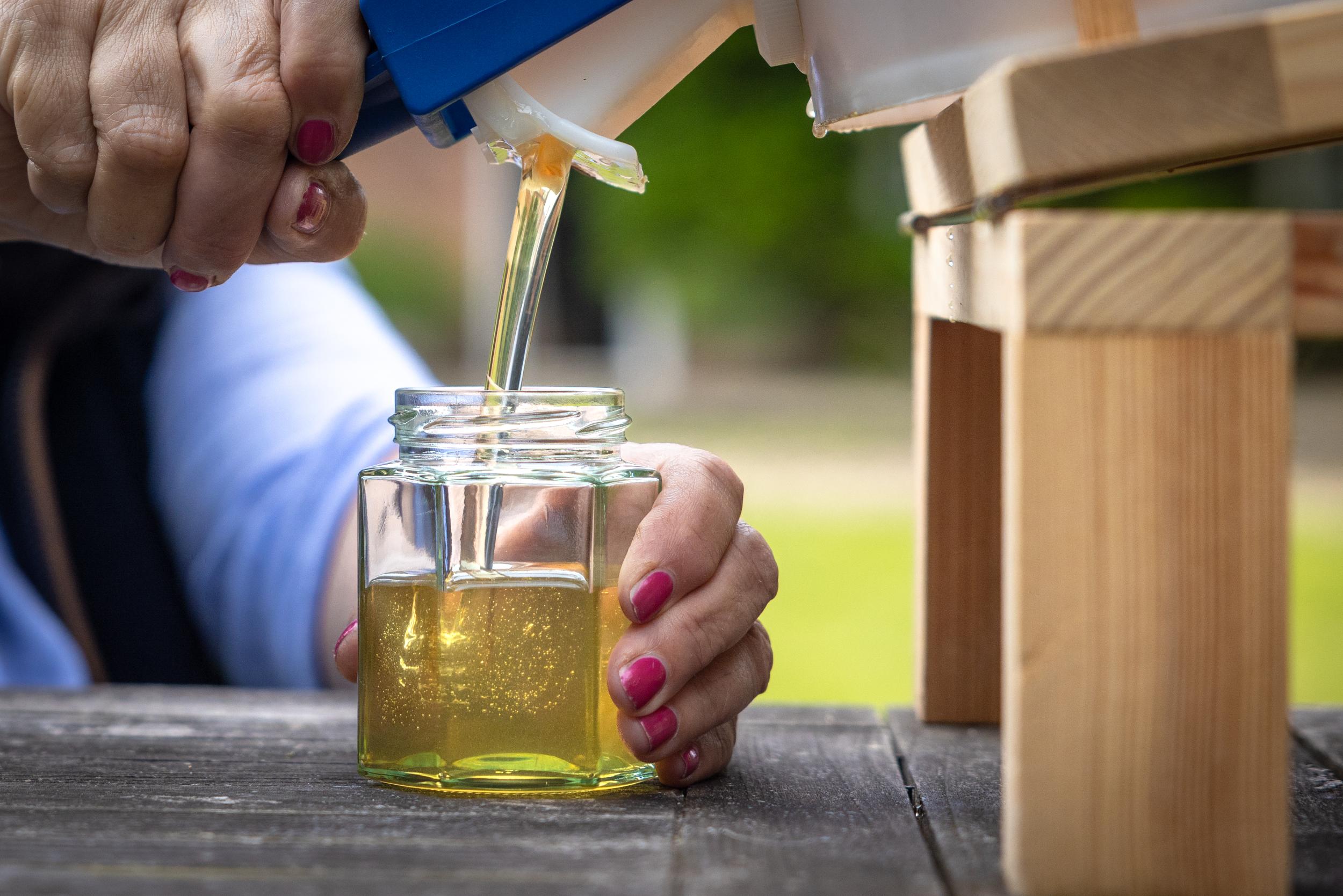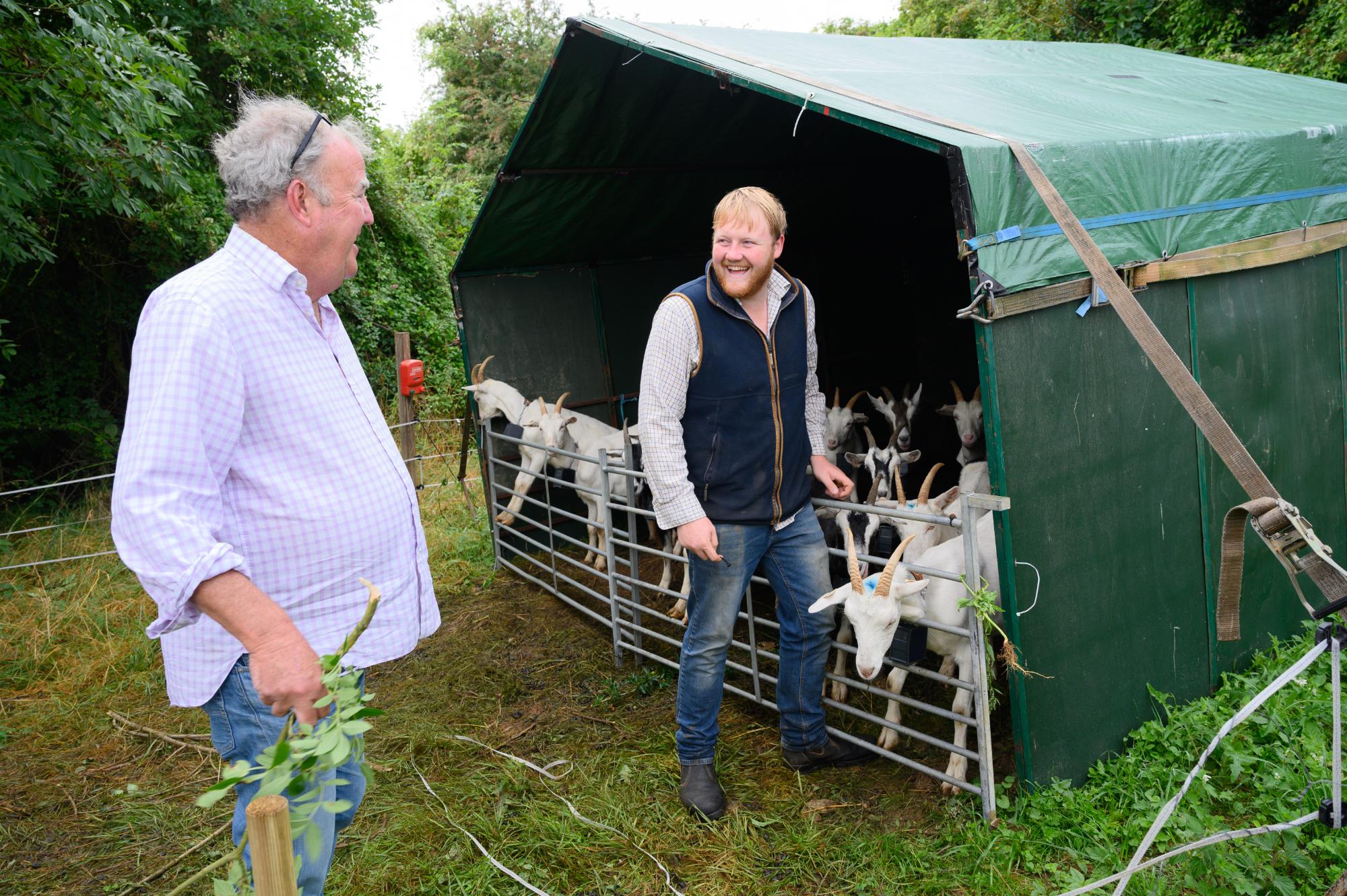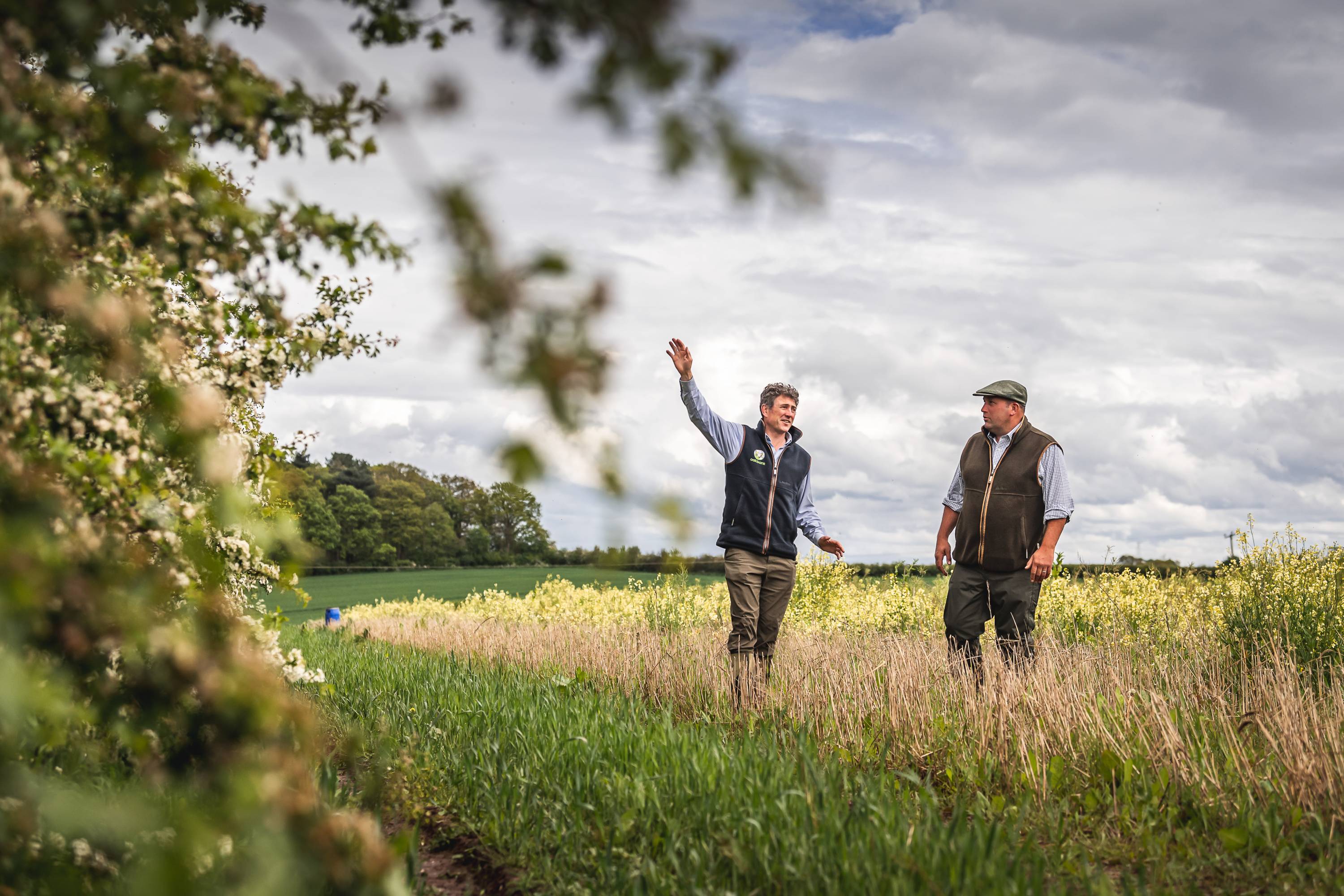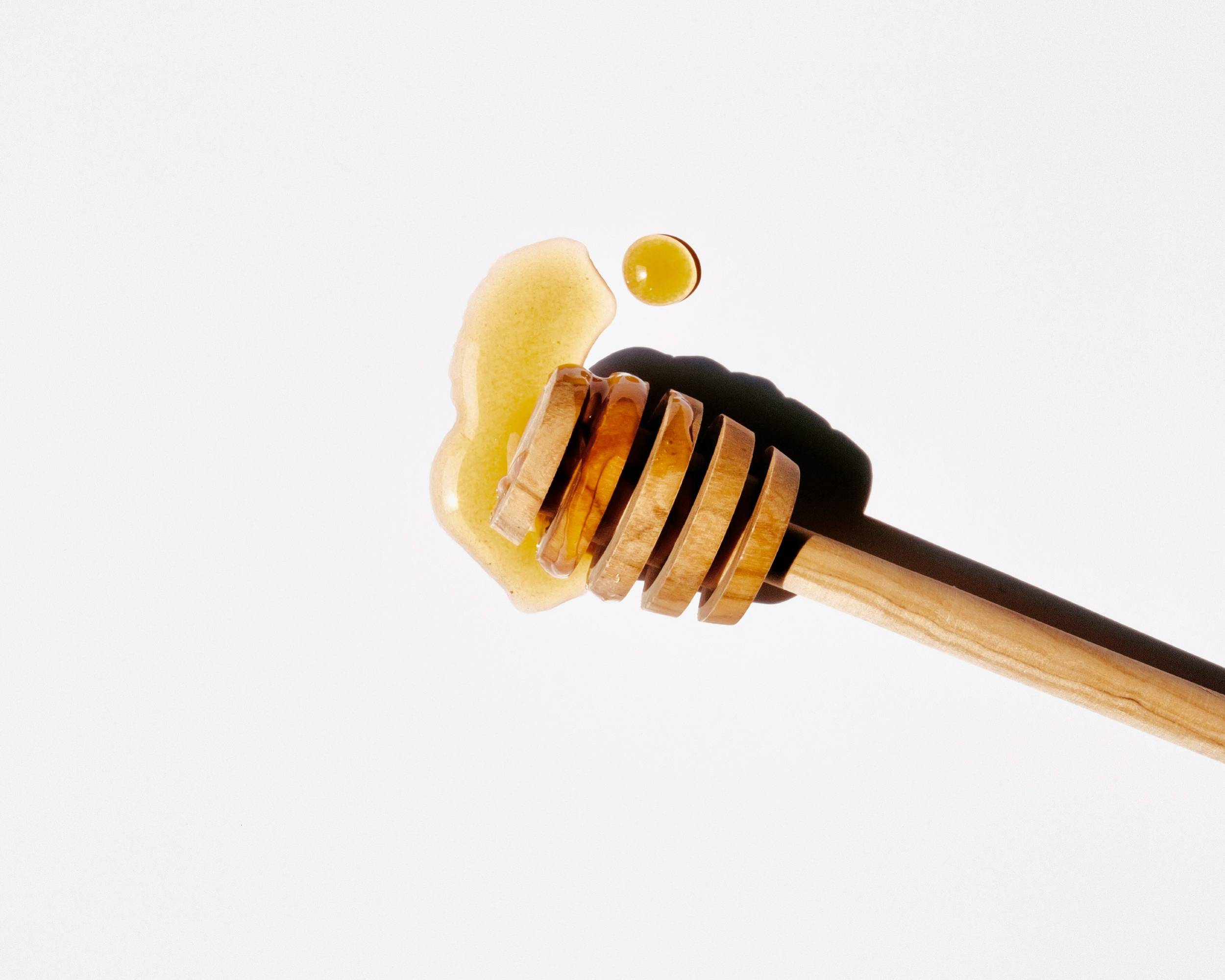

Honey fraud: have you been a victim?
Do you know where your honey comes from? Beekeepers in the UK are very concerned about practices they believe mislead consumers and threaten to undermine their good work.
In shops and markets across the UK, jars of honey promise the pure, sweet taste of nature – a foodstuff humans have held dear for millennia. But all is not as it might seem... Some producers are supposedly mixing real honey with cheap syrups and using misleading labels, deceiving consumers and harming the real-deal beekeepers in the process. If you care much about where your food comes, it’s an issue to be aware of.
At Schöffel Country, we’re passionate about food that comes from the countryside, and we like to champion the people who bring it to our tables. So, when we caught up with Luke Hutchinson from Northumberland Honey Company recently and the conversation turned to ‘honey fraud’, we were keen to learn more...
Luke and his wife Suzie will have close to 500 honey-producing colonies this summer. That’s roughly 25 million honeybees, in case you’re wondering. “We’re a team of six,” Luke explained when we spoke on the phone at the end of April. He was taking a break from stocking his mini ‘mating hives’ that produce queen bees. “Suzie and I tend to be out on the ground doing most of the hands-on beekeeping, then we have a brilliant team looking after the workshop, the office, and the unit.”
Luke describes the relationship with the farmers and landowners on whose ground they place their hives as a ‘win-win thing’. “We’re effectively providing a free pollination service, and we keep everyone topped up with honey. We’re happy, they’re happy, and it works very well.”
These ‘pollination services’ aren’t to be sniffed at, either. According to Luke, a hive of bees on a hectare of oilseed rape can increase yields by a tonne and improve oil quality. Correctly managed pollination can lead to substantial gains.
Unlike others further south in the UK, though – and, for that matter, many beekeepers overseas – Northumberland Honey Company doesn’t currently charge for these services. Instead, honey is a key income stream. ‘Honey fraud’ then, is of real concern...
What is honey fraud?
Simply put, honey fraud is the marketing and sale of a product that purports to be honey from a particular country but is actually a blend of honey and mass-produced sugar syrup of origin unknown.
Last year, the Honey Authenticity Network sent 30 samples from the UK to be DNA tested for authenticity. Five of the samples were sourced from British beekeepers and the remainder from large-scale retailers. Twenty-four of the 25 jars from the big retailers were deemed ‘suspicious’, while all the samples from the UK beekeepers were considered genuine. Debate around the testing method followed, but for many it underlined a real problem.
“They reckon for every 100 barrels of honey that come into the UK now, 90 or more are cut with sugar syrup,” Luke said. “And when it comes to provenance and traceability of honey, there seem to be few rules in place to ensure transparency.” The result? People have little idea where the honey they are buying is really from.
Luke explained how the ‘pure’ honey produced by the UK’s commercial beekeepers pales in significance as far as volume is concerned. “There are actually only 400 commercial beekeepers in the UK, and between us we produce just 5% of the honey that is consumed here, so we are a very small group of people without a massive voice.”
Why is honey fraud an issue?
Honey fraud is able to thrive, Luke thinks, because of two things: the race to the bottom on prices between some of our supermarkets, and a general lack of awareness among shoppers.
“We’ve been approached by supermarkets in the past who are interested in selling our honey, but for as little as £3 a jar,” he continued. “To add up financially it would have to be sold for more than double that. And even if we could do the lower price, we wouldn’t want to undercut our local shops and independent retailers.
“If you go back to the Second World War, a jar of honey was worth an average person’s hourly rate. Even at £7 or £8 a jar, we’re way behind that now.
“As producers, we’ve become more efficient, which helps, but there is still that lack of value assigned to honey, which is a fundamental reason I think for why honey fraud is happening.”
Luke pondered aloud the response among consumers if they bought what they thought was pure cow’s milk only to learn that it was white sugar water. “People would be in uproar about it,” he said.
Perhaps people’s views of honey, and how much they’d be willing to pay for a jar, would change as they learned more about how it is made – some of the facts and figures are incredible. Did you know, for example, that honeybees must collect nectar from approximately two million flowers to produce just a pound of honey? Or that during its lifetime, a typical worker bee will produce just a twelfth of a teaspoon of the sweet stuff? It should really be seen as a precious commodity.
“It’s our responsibility as beekeepers to improve understanding around how much effort goes into making honey, and just how special it is,” Luke admitted as we discussed the facts. “People should be aware of the benefits that come with increasing honeybee numbers in certain environments, too. It’s all about that bigger picture – a bigger picture that honey fraud undermines.”
How can we tackle honey fraud?
Luke admits that honey fraud is not an easy thing to address, for several reasons.
Firstly, the authenticity tests available at present are not, in his eyes, completely watertight. “I’ve heard of lab-made honey from China being produced in a way that ensures it will pass the current tests,” he explained. “Given the nature of how bees forage, there’s also the very real chance of a genuine beekeeper being prosecuted for fraudulent honey through no fault of their own...
“These DNA tests can pick up a tenth of a teaspoon of sugar syrup in 10,000 litres of honey, and they can’t differentiate between a sugar solution that has passed through a bee and one that has been physically added to a blend by humans. A bee out foraging from a hive will quite happily go for a sweet sticky drink that has been spilled in a park, and therein lies the problem...” To illustrate his point further, Luke told the story of the French beekeepers who couldn’t understand why their bees were making honey in unnatural shades of blue and green, only to discover they had been visiting a factory that produced M&Ms and foraging in its waste.
Of course, further testing would also add burden to those who are already doing things right. “On the one hand, UK bee farmers really want to address the issue of honey fraud,” said Luke. “But then, on the other, we know that more tests and red tape would be an extra cost for those of us doing everything by the book when margins are already tight...”
“Ultimately,” said Luke, “we need sensible testing and legislation to match. And we need real buy in from government. There used to be a cross-parliamentary group on pollinators, but that is no more. I find that staggering...”
Until such a system is introduced, though, there’s something we can all do to help: we can buy our honey from trusted British beekeepers... “And, when you enjoy it,” Luke added before I let him get back to his hives, “it would make all the difference if you could spread the word so others follow suit...”

